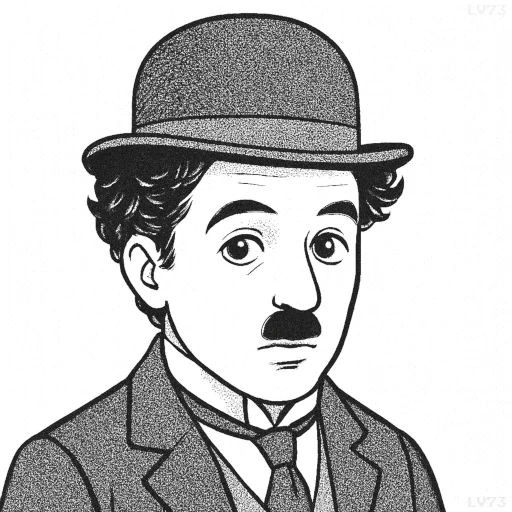“I am at peace with God. My conflict is with Man.”

- April 16, 1889 – December 25, 1977
- British
- Comedian, film actor, director, screenwriter, composer
table of contents
Quote
“I am at peace with God. My conflict is with Man.”
Explanation
This quote by Charlie Chaplin expresses a deep sense of inner spiritual peace and yet a profound disillusionment with human society. Chaplin, who was often engaged with social issues in his films, reflects here on the notion that while he feels aligned with a higher power or spiritual truth, he finds himself in constant conflict with the flaws, injustices, and inconsistencies of the human condition. This can be interpreted as a critique of society, its moral failings, and its tendency to misuse power and create divisions. Chaplin’s films frequently challenged the ways in which humans treated each other, particularly the poor, the oppressed, and the marginalized, suggesting that while spiritual peace might be attainable, achieving harmony among humans remains a significant struggle.
Chaplin’s personal philosophy, shaped by his experiences in early poverty, global conflict, and the rise of authoritarian regimes, likely informed this perspective. He lived through a time of great political turmoil, witnessing the rise of fascism and totalitarianism, as well as the struggles of ordinary people during the Great Depression. In his work, particularly in films like The Great Dictator (1940), Chaplin directly confronted the evils of man—political corruption, war, and social inequality. His statement suggests that while he may have found peace in his relationship with the divine, the real challenge lies in confronting the failures of human institutions and the inequality and violence that often arise from them.
In modern times, Chaplin’s words can resonate with those who feel a sense of personal spirituality or individual peace but who are deeply troubled by the state of the world. Whether in the face of political injustice, economic inequality, or human rights abuses, many people today feel the same sense of conflict with human society that Chaplin describes. His words serve as a reminder that while spiritual peace is an internal state, the challenges of living in a flawed world often require activism, social engagement, and a critical eye toward how people interact with one another and the systems they create. Chaplin’s statement can also be viewed as a call to reconcile the peace we find within ourselves with the change we seek to create in the world.
Would you like to share your impressions or related stories about this quote in the comments section?

